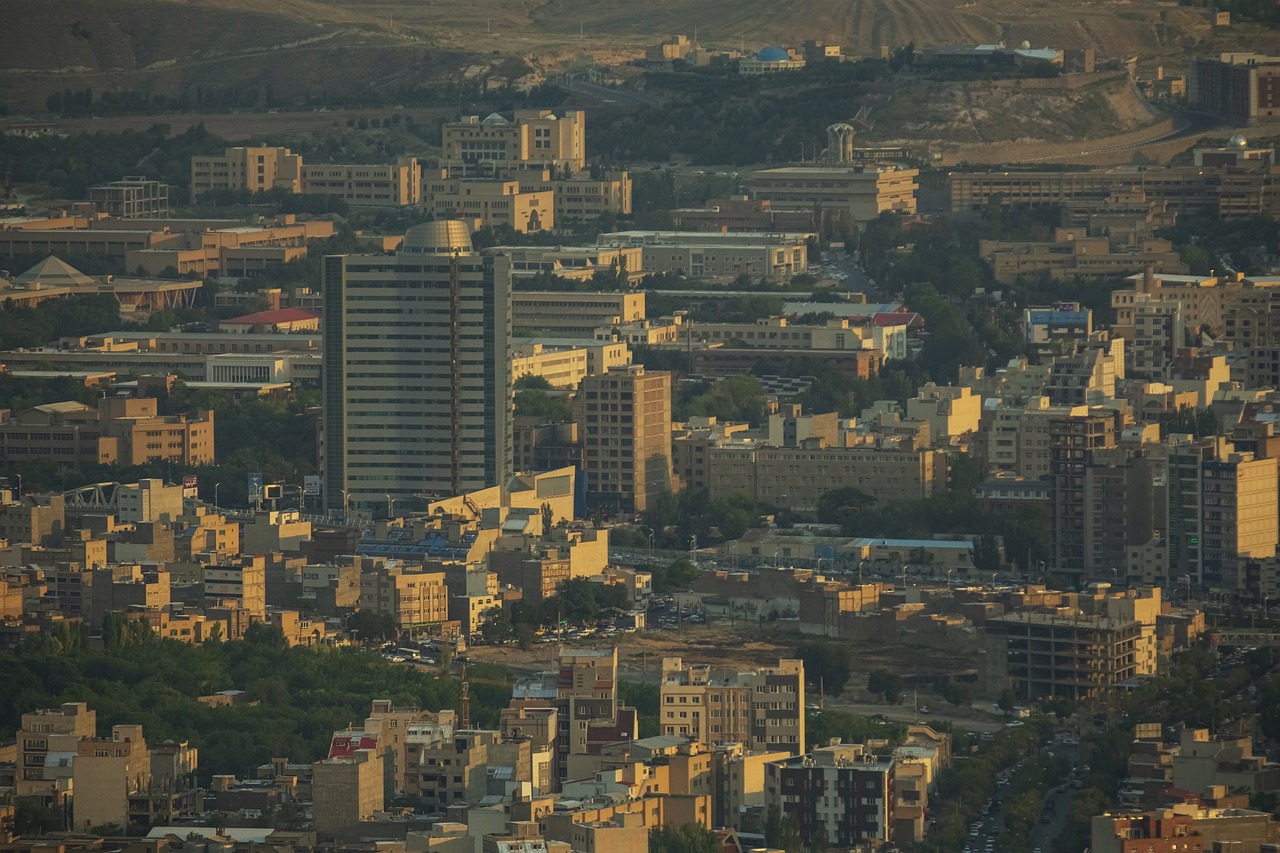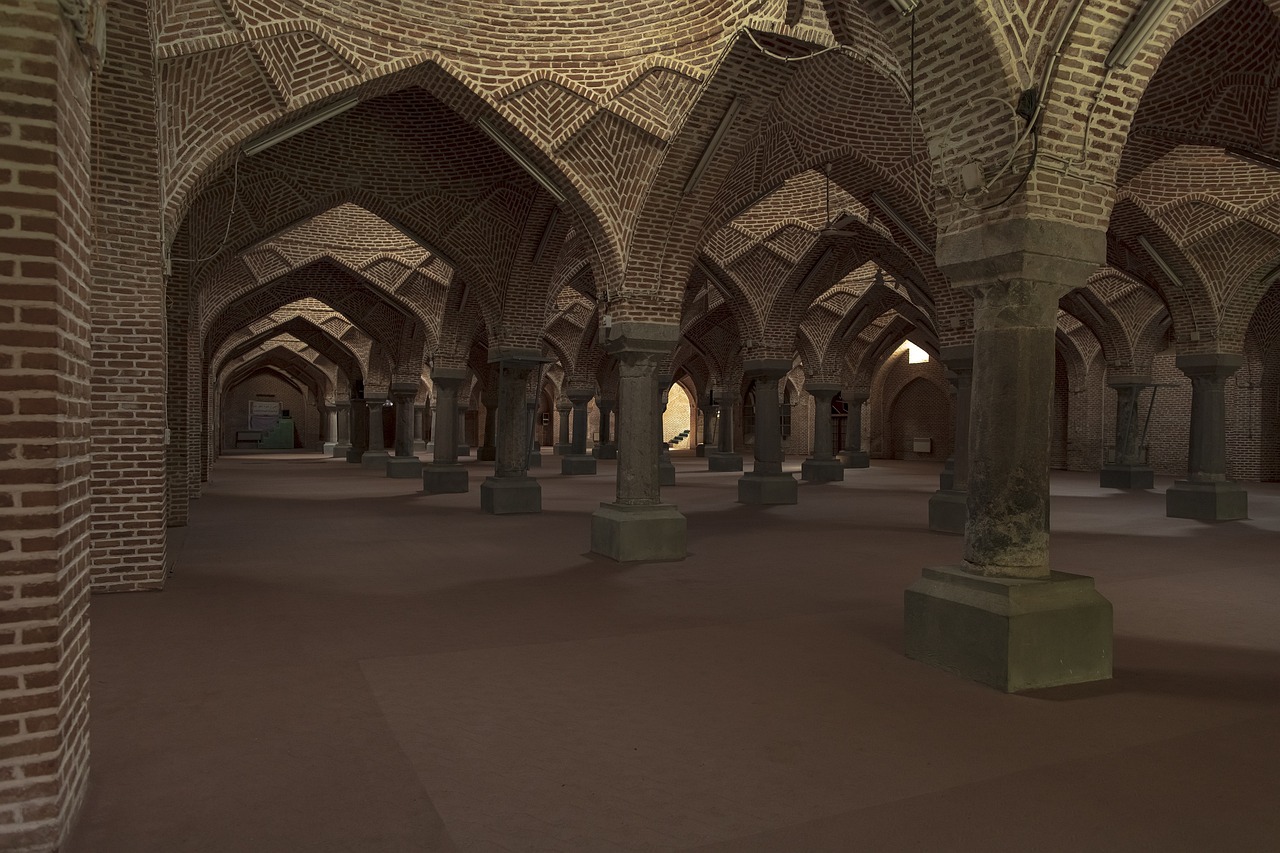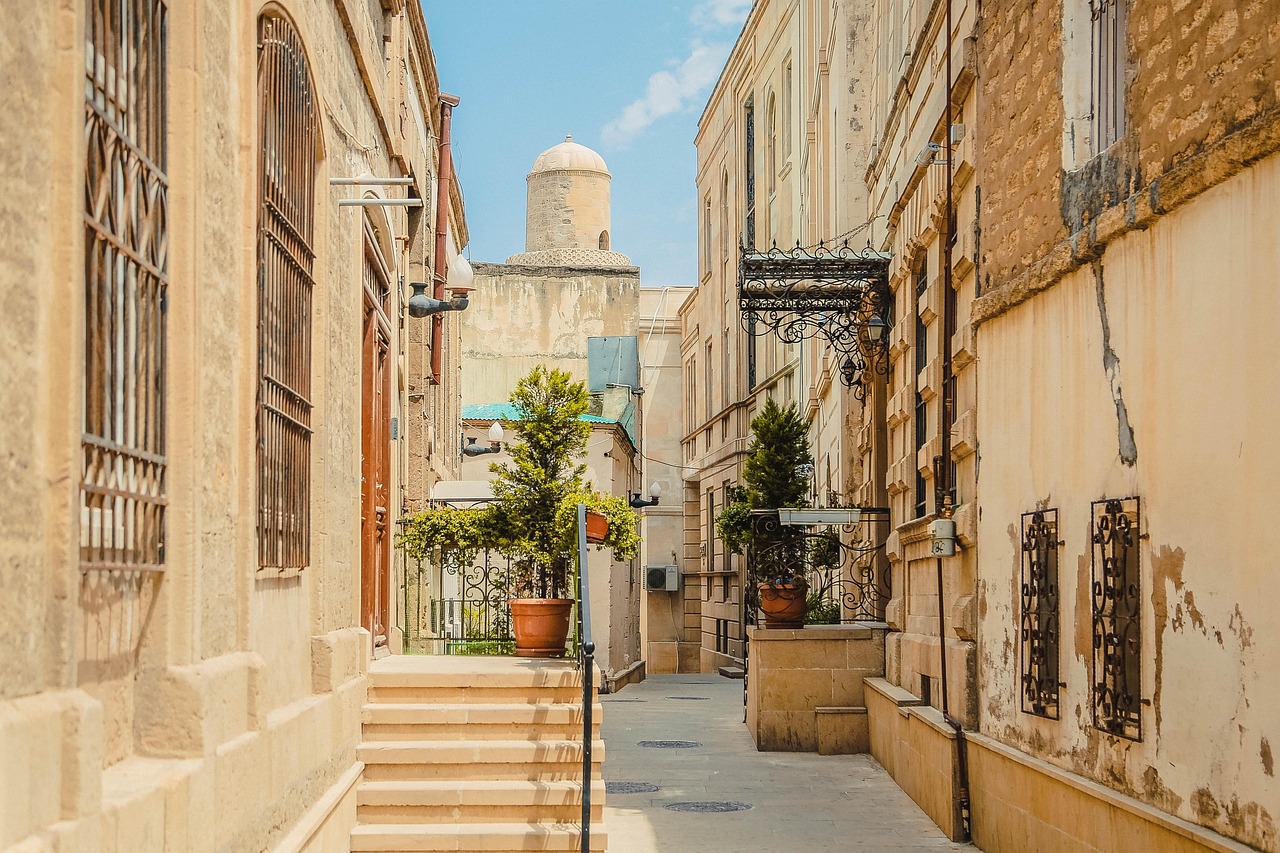Azerbaijan Video
Local Celebrations and Holidays: What to Expect in Azerbaijan
Azerbaijan is a country rich in culture and traditions, and its local celebrations and holidays offer a glimpse into the vibrant spirit of the nation. From ancient customs to modern festivities, Azerbaijan has a diverse range of celebrations that reflect its history, religion, and national identity. Whether you are visiting Azerbaijan or planning to immerse yourself in its culture, here is what you can expect during the local celebrations and holidays in Azerbaijan.
Azerbaijan Image 1:

Section 1: Novruz Bayrami
Novruz Bayrami, also known as the Persian New Year, is one of the most anticipated celebrations in Azerbaijan. It marks the arrival of spring and the renewal of nature. During Novruz Bayrami, people clean their houses, prepare traditional dishes, and set up a festive table called “Khoncha.” The celebration includes various customs and rituals, such as jumping over bonfires, exchanging gifts, and visiting relatives. Novruz Bayrami is a time of joy and unity, and it is celebrated with enthusiasm throughout the country.
- Jumping over bonfires: A popular tradition during Novruz Bayrami is jumping over bonfires. It is believed to cleanse the body and soul from negative energy and bring good luck for the upcoming year.
- Exchanging gifts: Another important aspect of Novruz Bayrami is the exchange of gifts. People give presents to their loved ones, friends, and neighbors as a gesture of goodwill and blessings for the new year.
- Visiting relatives: Novruz Bayrami is a time for family reunions and visiting relatives. People travel to their hometowns or invite family members to their homes to share the joy of the celebration.
During the celebrations, bonfires are lit in public spaces, and people gather around to jump over them. It is a thrilling and symbolic act that signifies leaving behind the darkness of winter and embracing the light of spring.
The gifts can range from traditional sweets and pastries to symbolic items like colored eggs and sprouting wheatgrass, representing the fertility and abundance of nature.
During these visits, families gather around the Khoncha table, which is adorned with seven items representing the elements of life, such as fire, water, and earth. Each item holds a symbolic meaning and is believed to bring blessings and prosperity.
Section 2: Ramadan and Eid al-Fitr
Ramadan and Eid al-Fitr are significant religious celebrations for the Muslim community in Azerbaijan. Ramadan is the holy month of fasting, while Eid al-Fitr marks the end of Ramadan. During Ramadan, Muslims abstain from food and drinks from sunrise to sunset, focusing on prayer, self-reflection, and acts of charity. The fasting period is followed by a festive celebration known as Eid al-Fitr.
- Fasting during Ramadan: Muslims in Azerbaijan observe Ramadan by fasting from dawn to sunset. It is a time of spiritual reflection, self-discipline, and increased devotion to prayer.
- Eid al-Fitr celebrations: Eid al-Fitr is a joyous celebration that marks the end of Ramadan. It begins with a special prayer called Salat al-Eid, performed in congregations at mosques or open spaces.
- Traditional dishes: During Eid al-Fitr, traditional Azerbaijani dishes are prepared to celebrate the occasion. One of the most popular dishes is “Plov,” a flavorful rice dish cooked with meat, dried fruits, and aromatic spices.
Throughout the month, people gather for communal prayers at mosques and engage in acts of charity to help those in need. The evenings are filled with family gatherings and feasts to break the fast.
After the prayer, families come together to share festive meals and exchange gifts. Children receive “Eidi,” which are monetary gifts given by adults as a token of love and blessings.
Other traditional sweets and pastries, such as “Shekerbura” (sweet pastries filled with nuts and sugar) and “Pakhlava” (layered pastry with nuts and honey), are also enjoyed during the festivities.
Section 3: Independence Day
Independence Day is a significant national holiday in Azerbaijan, celebrated on October 18th each year. It commemorates the country’s independence from the Soviet Union, which was gained in 1991. Independence Day is a time for Azerbaijanis to express their patriotism and celebrate their freedom.
Azerbaijan Image 2:

- Celebrations and parades: Independence Day is marked by grand celebrations and parades held in the capital city, Baku, and other major cities across the country.
- Cultural events: Independence Day is also a time to showcase Azerbaijan’s rich cultural heritage. Various events, such as concerts, exhibitions, and traditional performances, are organized to promote national pride and unity.
- Fireworks: The celebrations culminate in spectacular fireworks displays, lighting up the night sky with vibrant colors. The fireworks symbolize the spirit of freedom and the bright future of Azerbaijan.
The streets are adorned with national flags, and people gather to witness the military parades, cultural performances, and fireworks displays.
These events highlight the country’s music, dance, art, and traditional crafts, providing a platform for local artists to showcase their talents and cultural contributions.
People gather in parks, squares, and along the waterfront to enjoy the mesmerizing fireworks and celebrate the nation’s independence.
Section 4: Gurban Bayrami
Gurban Bayrami, also known as Eid al-Adha or the Feast of Sacrifice, is a significant religious holiday celebrated by Muslims worldwide. It commemorates the willingness of Ibrahim (Abraham) to sacrifice his son as an act of obedience to God. Gurban Bayrami is a time of prayer, charity, and communal feasting.
- Prayers and sacrifice: On the first day of Gurban Bayrami, Muslims gather for the Eid prayer at mosques or designated prayer areas. The prayer is followed by the sacrifice of an animal, usually a sheep or a cow, symbolizing Ibrahim’s willingness to make the ultimate sacrifice.
- Charitable acts: Gurban Bayrami emphasizes the importance of charity and helping those in need. Muslims are encouraged to give to the poor and support charitable organizations during this time.
- Feasting and gatherings: Gurban Bayrami is a time for families to come together and share a festive meal. Traditional dishes, such as kebabs, pilaf, and various meat-based dishes, are prepared to celebrate the occasion.
The meat from the sacrificed animal is divided into three parts: one part is kept for the family, one part is given to relatives and friends, and the remaining part is donated to the less fortunate.
Many people donate money, food, and clothing to ensure that everyone can partake in the festive celebrations and have a proper meal.
Family and friends gather to enjoy the delicious feast, exchange greetings, and strengthen the bonds of kinship.
Section 5: International Mugham Festival
The International Mugham Festival is a prestigious music festival held annually in Baku, Azerbaijan. It celebrates the traditional Azerbaijani music genre called “Mugham,” which has deep historical and cultural roots in the country. The festival attracts renowned musicians, scholars, and music enthusiasts from around the world.
- Showcasing Mugham: The International Mugham Festival aims to promote and preserve the rich heritage of Azerbaijani Mugham music. It brings together talented musicians who perform Mugham compositions in various styles and interpretations.
- Concerts and competitions: The festival features a series of concerts, recitals, and competitions, where musicians compete for recognition and awards. These events take place in prestigious venues, such as the Heydar Aliyev Palace and the Azerbaijan State Philharmonic Hall.
- Workshops and lectures: In addition to performances, the International Mugham Festival offers workshops, lectures, and masterclasses conducted by renowned Mugham experts. These educational sessions provide insights into the history, theory, and techniques of Mugham music.
The festival provides a platform for both traditional and contemporary Mugham performances, showcasing the versatility and beauty of this unique musical genre.
Audiences have the opportunity to witness captivating performances by local and international Mugham artists, immersing themselves in the enchanting melodies and soulful expressions of Azerbaijani music.
Attendees can learn about the intricacies of Mugham improvisation, vocal techniques, and the traditional instruments used in this art form.
Azerbaijan Image 3:

Section 6: Victory Day
Victory Day, celebrated on May 9th, commemorates the victory of the Soviet Union over Nazi Germany in World War II. It is a day to honor the sacrifices made by Azerbaijani soldiers and civilians during the war and to remember the importance of peace and unity.
- Memorial ceremonies: Victory Day begins with solemn memorial ceremonies held at war memorials and cemeteries across Azerbaijan. People gather to pay their respects to the fallen soldiers and victims of the war.
- Parades and military displays: Victory Day features military parades and displays in honor of the Azerbaijani Armed Forces. The parades showcase the country’s military capabilities and pay tribute to the bravery and resilience of the soldiers.
- Concerts and cultural events: Cultural events, concerts, and exhibitions are organized on Victory Day to celebrate the nation’s resilience and unity. These events feature patriotic songs, dance performances, and art exhibitions that highlight the spirit of victory and national pride.
Flowers and wreaths are laid at the memorials, and prayers are offered for the souls of the departed. It is a time for reflection and gratitude for the sacrifices made in the pursuit of freedom.
People line the streets to witness the impressive displays of tanks, armored vehicles, and military aircraft, reaffirming the nation’s commitment to defending its independence and sovereignty.
It is a time for Azerbaijanis to come together and commemorate the historic triumph over fascism while cherishing the values of peace and freedom.
Section 7: Goychay Pomegranate Festival
The Goychay Pomegranate Festival is an annual event held in Goychay, a region in Azerbaijan known for its pomegranate orchards. The festival celebrates the harvest season and showcases the cultural significance of the pomegranate in Azerbaijani cuisine and traditions.
- Pomegranate exhibitions: The Goychay Pomegranate Festival features exhibitions where various pomegranate varieties are displayed. Visitors can learn about the different types, taste the juicy fruits, and appreciate the vibrant colors and flavors.
- Cooking competitions: The festival includes cooking competitions where participants showcase their culinary skills using pomegranates as the main ingredient. Traditional Azerbaijani dishes, desserts, and beverages incorporating pomegranates are prepared and presented to a panel of judges.
- Folk performances and music: Cultural performances, folk dances, and music add to the festive atmosphere of the Goychay Pomegranate Festival. Local artists and musicians entertain the crowds with traditional songs and dance routines, celebrating the cultural heritage of the region.
The exhibition also highlights the health benefits of pomegranates, which are rich in antioxidants and known for their medicinal properties.
The competitions provide an opportunity to explore the versatility of pomegranates in Azerbaijani cuisine and discover new flavors and combinations.
The festival offers a lively and joyful experience, immersing visitors in the vibrant colors, tastes, and sounds of Azerbaijan’s pomegranate culture.
Section 8: National Flag Day
National Flag Day, celebrated on November 9th, commemorates the adoption of the national flag of Azerbaijan. It is a day to honor the country’s flag, which represents its identity, independence, and unity.
- Raising the flag: National Flag Day begins with a flag-raising ceremony at public buildings, schools, and other institutions across Azerbaijan. The national flag, with its three horizontal stripes of blue, red, and green, is hoisted high to symbolize the pride and unity of the nation.
- Cultural events and performances: Cultural events, concerts, and performances are organized on National Flag Day to celebrate the country’s cultural diversity and artistic achievements. These events showcase traditional music, dance, and theatrical performances that reflect the spirit of Azerbaijan.
- Flag-themed decorations and displays: On National Flag Day, streets, buildings, and public spaces are adorned with flag-themed decorations and displays. The national flag is prominently displayed, creating a festive and patriotic atmosphere throughout the country.
People gather to witness the ceremony and pay their respects to the flag, which is a powerful symbol of Azerbaijan’s sovereignty and heritage.
It is a day to appreciate the cultural richness of the nation and to promote national pride and unity.
People take pride in their national flag, and the vibrant displays serve as a reminder of Azerbaijan’s history, culture, and aspirations.
Section 9: Ashura
Ashura is a significant religious observance for the Shia Muslim community in Azerbaijan. It commemorates the martyrdom of Imam Hussein, the grandson of Prophet Muhammad, and his companions in the Battle of Karbala. Ashura is a time of mourning, reflection, and self-sacrifice.
- Mourning processions: During Ashura, Shia Muslims participate in mourning processions known as “Taziyah.” These processions involve walking through the streets while beating the chest and reciting mournful chants and elegies.
- Charitable acts: Ashura emphasizes the importance of selflessness and charity. Many Shia Muslims engage in acts of charity, such as feeding the poor, providing shelter, and offering support to those in need.
- Religious rituals and prayers: Ashura is a time for Shia Muslims to engage in religious rituals and prayers. Special congregational prayers are held at mosques, and religious scholars deliver sermons that recount the events of Karbala and the lessons to be learned from Imam Hussein’s sacrifice.
The processions symbolize the sorrow and grief felt by Imam Hussein’s followers, as they remember the tragic events of Karbala and the sacrifices made for the sake of justice and righteousness.
These acts of kindness and generosity reflect the spirit of Imam Hussein’s sacrifice and serve as a reminder of the values of compassion and empathy.
The prayers and sermons inspire followers to uphold the principles of justice, truth, and selflessness in their daily lives.
Section 10: International Jazz Festival
The International Jazz Festival in Baku is an annual event that celebrates the rich and vibrant jazz culture in Azerbaijan. It brings together local and international jazz musicians, showcasing their talent and creativity in various venues across the city.
- Jazz performances: The International Jazz Festival features a series of concerts and performances by renowned jazz artists from around the world. Musicians present a diverse range of jazz styles, including traditional, fusion, and contemporary interpretations.
- Workshops and masterclasses: The festival offers educational programs, workshops, and masterclasses conducted by experienced jazz musicians. These sessions provide aspiring musicians with valuable insights into jazz theory, improvisation techniques, and performance skills.
- Jazz competitions: The International Jazz Festival also includes competitions for young jazz musicians. These competitions provide a platform for emerging talents to showcase their skills and gain recognition in the jazz community.
Audiences have the opportunity to immerse themselves in the captivating rhythms, improvisations, and soulful melodies of jazz music.
Attendees can learn from the best in the industry and enhance their knowledge and skills in jazz music.
The competitions encourage the growth of jazz music in Azerbaijan and contribute to the development of a new generation of jazz artists.
Section 11: Fireworks Festival
The Fireworks Festival in Baku is a spectacular event that mesmerizes both locals and visitors with dazzling displays of fireworks. The festival takes place during the summer months, lighting up the night sky and creating a magical atmosphere.
- Fireworks shows: The Fireworks Festival showcases breathtaking fireworks shows by international pyrotechnic teams. The teams compete to create the most stunning and artistic displays, using a combination of colors, patterns, and synchronized music.
- Music and entertainment: The festival offers a range of entertainment options, including live music performances, dance shows, and street performances. Local and international artists take the stage, adding to the festive atmosphere of the event.
- Food and vendors: The Fireworks Festival features food stalls and vendors offering a variety of local and international cuisines. Visitors can indulge in delicious snacks, traditional Azerbaijani dishes, and refreshing beverages while enjoying the festivities.
The fireworks shows are held at various locations in Baku, providing different perspectives and vantage points for spectators to enjoy the dazzling spectacle.
Attendees can enjoy the vibrant energy, music, and cultural performances while waiting for the fireworks displays to begin.
The festival creates a lively and festive ambiance, providing a memorable experience for people of all ages.
Section 12: Conclusion
Azerbaijan’s local celebrations and holidays offer a unique opportunity to experience the country’s rich cultural heritage, traditions, and national identity. From the ancient customs of Novruz Bayrami to the vibrant jazz performances at the International Jazz Festival, each celebration reflects the spirit, diversity, and pride of Azerbaijan.
Whether you witness the jumping over bonfires during Novruz Bayrami, join the solemn processions of Ashura, or immerse yourself in the captivating melodies of Mugham music, Azerbaijan’s local celebrations and holidays will leave you with unforgettable memories and a deeper appreciation for the country’s cultural tapestry.
So, plan your visit to Azerbaijan during one of these celebrations, and embrace the joy, unity, and cultural richness that define this beautiful nation.
References:
– Official website of the State Tourism Agency of the Republic of Azerbaijan: tourism.az
– Official website of the International Mugham Center: mugham.az
– Official website of the International Jazz Festival: jazzfestival.az
– Official website of the Goychay Pomegranate Festival: goychayfestival.az
– Official website of the Baku Fireworks Festival: fireworks.az


